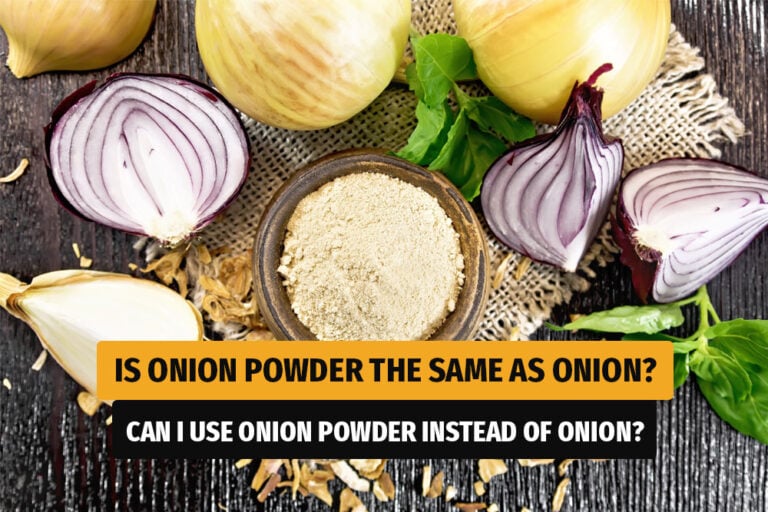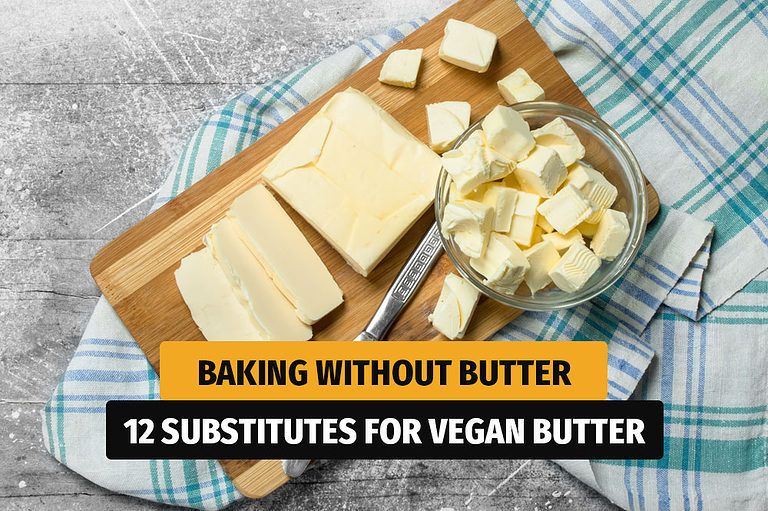
Bouillon cubes seem simple enough—just drop one in hot water and voilà, instant flavor! But if you’re following a vegan lifestyle, these little flavor bombs can actually be quite the mystery.
Are they friend or foe? The answer isn’t as straightforward as we might hope.
Some bouillon cubes are vegan, but many contain animal products like chicken extract, beef broth, or dairy derivatives. It’s that classic “read the fine print” scenario if you want to keep your soup cruelty-free.
The good news? Plenty of brands make delicious plant-based alternatives that pack all the punch without any animal ingredients.
Think of vegan bouillon cubes as your secret kitchen weapon. They’re shelf-stable, eco-friendly, and can turn your bland Tuesday night dinner into something that actually tastes like you tried.
Making the switch to vegan options means you’re cooking with ingredients that are typically more sustainable and environmentally friendly. Who knew such a tiny cube could make such a big difference?
What Are Bouillon Cubes, Really?
Those innocent-looking flavor bombs sitting in your pantry have quite a story to tell. Bouillon cubes may be small, but they pack a punch of ingredients that can make or break your vegan lifestyle choices.
Bouillon cubes are essentially concentrated flavor in a convenient cube form. Think of them as tiny flavor bombs waiting to explode in your soup pot!
These small blocks (typically about 1/2 inch wide) are made by dehydrating broth or stock and compressing it with other ingredients. The word “bouillon” comes from the French word for broth, which makes sense since that’s exactly what you’re creating when you drop one in hot water.
Before these handy cubes existed, you’d have spent hours boiling bones or vegetables to get that rich flavor. Today, they come in various forms besides the classic cube:
- Granules
- Powders
- Pastes
- Liquid concentrates
Just one cube can transform a bland pot of water into a flavorful base for soups, stews, and sauces in seconds. Talk about kitchen magic!
Your bouillon cube’s ingredient list might look scarier than a horror movie. The star players often include:
The Basics:
- Salt (and lots of it!)
- Dehydrated vegetables or meat stock
- Fats (animal or vegetable-based)
- MSG (monosodium glutamate) for that umami punch
- Various herbs and spices
The Sneaky Stuff:
- Hydrolyzed proteins
- Yeast extract
- “Natural flavors” (a vague term that could hide animal products)
- Food colorings
Many bouillon cubes also contain preservatives to extend shelf life. While not inherently non-vegan, ingredients like disodium inosinate and disodium guanylate sometimes come from animal sources.
The real troublemakers for vegans are gelatin (made from animal collagen), dairy derivatives, and meat-based stocks. These hide in plain sight, so always check those labels carefully!
Your vegan-friendly bouillon cubes will proudly showcase plant-based ingredients. Look for products containing vegetable powders, herbs, spices, and plant oils.
Vegetable bouillon often features a mix of carrots, onions, celery, garlic, and herbs that create a flavorful base.
Vegan-Friendly Ingredients:
- Nutritional yeast (adds cheesy, savory flavor)
- Mushroom powder (great for umami)
- Seaweed extracts
- Soy protein
- Plant-based oils
Animal-Derived Red Flags:
- Chicken/beef/fish extracts
- Gelatin
- Lard or tallow
- Milk proteins
- Honey
Bouillon powder labeled “vegetarian” might still contain dairy, so don’t assume it’s vegan. True vegan options will specifically state “vegan” or “plant-based” on the packaging.
Many companies now make excellent vegan alternatives that don’t sacrifice flavor. These products often use clever combinations of ingredients to mimic the richness of animal-based stocks without any animal suffering involved.

Vegan Bouillon
Navigating the world of bouillon cubes can feel like playing detective with your dinner. Those innocent-looking flavor bombs might be hiding animal ingredients behind their savory disguise.
Ever picked up a “vegetable” bouillon cube only to find chicken hiding in the ingredient list? You’re not alone!
Many bouillon products contain sneaky animal-derived ingredients that aren’t obvious at first glance. Watch out for these common non-vegan culprits:
- Chicken/beef/pork fat or extracts – Even “vegetable” flavored varieties might contain these
- Gelatin – A protein derived from animal collagen
- Lactose or milk powder – Dairy products that lurk in many bouillon formulations
- Fish sauce or anchovy extract – Adds umami but definitely not vegan
- Natural flavors – This vague term can hide animal-derived ingredients
The most deceptive ingredient? “Natural flavors”—this catch-all term can include anything from plant extracts to rendered animal fats.
When in doubt, contact the manufacturer or choose certified vegan options.
You don’t need to squint at ingredient lists forever! Look for these vegan-friendly indicators that do the heavy lifting for you:
Reliable vegan certifications include:
- Certified Vegan logo (Vegan Action)
- Vegan Society’s Vegan Trademark
- Plant Based Foods Association seal
Many brands now proudly display “100% Plant-Based” or “Suitable for Vegans” right on the front label. Your eyes will thank you!
Don’t be fooled by “vegetarian-friendly” labels though. These products might still contain eggs or dairy.
When shopping online, use the search filter “vegan” to narrow down your options quickly. Some vegan-friendly brands actually highlight what’s NOT in their products: “No animal derivatives” or “Free from animal testing” are good signs you’re on the right track.
You’ve found a vegan bouillon, but wait—it says “may contain traces of milk” on the label. What gives?
This warning usually means the product is made in a facility that also processes non-vegan items. Cross-contamination warnings are mostly for people with severe allergies, not ethical vegans.
If you’re strictly vegan for ethical reasons, these traces are generally considered acceptable since they’re not intentional ingredients. However, if you’re uncomfortable with any potential cross-contact, look for products made in dedicated vegan facilities.
Some brands take extra precautions:
- Separate production lines
- Thorough cleaning protocols between batches
- Dedicated vegan manufacturing facilities
Perfect veganism is practically impossible in our food system. Focus on intention rather than absolute purity if cross-contamination warnings stress you out.
Bouillon has broken free from its cube-shaped prison! Vegan bouillon now comes in all sorts of convenient forms to jazz up your plant-based cooking.
Popular vegan bouillon formats:
- Traditional cubes (the OG kitchen helper)
- Powders (easier to measure precisely)
- Pastes in jars (for super-concentrated flavor)
- Liquid concentrates (just pour and stir)
Vegan bouillon powders often pack more flavor variety than cubes. Look for exciting options like “no-chicken,” “beefless,” “mushroom umami,” or “roasted garlic” to add depth to your plant-based dishes.
Many powders also offer lower sodium options—a huge plus since traditional bouillon can be a salt bomb! Some brands now use potassium chloride or seaweed extracts to keep that savory kick with less sodium.
Try making your own vegan bouillon powder by blending nutritional yeast, dried mushrooms, herbs, and salt. It’s cheaper than store-bought and you can customize the flavor exactly how you like it!
Which Bouillon Cubes Get the Vegan Crown?
Finding the perfect vegan bouillon cube can feel like searching for a needle in a haystack of chicken and beef flavors. Let’s dive into the world of plant-based flavor bombs that will transform your soups and stews without any animal ingredients sneaking in.
Frontier Co-Op offers some seriously tasty options with their No-Chicken and No-Beef varieties. They’ve mastered the art of mimicking meaty flavors without the actual meat.
BOU brings a gluten-free vegan vegetable bouillon to the table with 20% less salt than leading brands. Your sodium levels will thank you while your taste buds still party.
Massel 7’s compressed stock cubes deserve a shoutout for their high-quality herbs and complete absence of animal products. They’re like the reliable friend who always shows up with snacks.
Edward & Sons carries an impressive line with vegan chicken, beef, and vegetable options. Their cubes are not only vegan but also gluten-free and free from top allergens (though they do contain corn and yeast).
Fun fact: Most of these brands are also non-GMO and free from artificial flavors!
Taste-Testing: Vegetable Bouillon for the Win?
Vegetable bouillon’s usually the safest bet for vegan options. Most are a blend of carrots, onions, celery, and herbs—kind of like a garden party in a cube.
In blind taste tests, BOU Vegetable scores high for its balanced flavor. It’s not overly salty, and you can actually taste the vegetables.
Frontier Co-Op’s vegetable bouillon brings a more complex herb profile. It works beautifully in Mediterranean dishes and feels like a little ticket to flavor town.
Mushroom lovers, keep an eye out for bouillon with porcini or shiitake added. These fungi add that coveted umami punch that makes soups taste like they’ve simmered all day.
Pro tip: Toss in a dash of nutritional yeast to any vegan bouillon for an extra cheesy, savory boost!
If you’re on the budget-friendly side, Edward & Sons cubes usually run about $0.40-0.50 per cube. Not bad for transforming a whole pot of soup.
Premium organic options like Rapunzel cost a bit more, usually $0.60-0.75 per cube. Your wallet might feel the pinch, but your taste buds could throw a party.
Availability really depends on where you live. Here’s where you’ll find them:
- Widely Available: BOU, Massel (most natural food stores)
- Health Food Stores: Edward & Sons, Frontier Co-Op
- Online Superstars: All brands (Amazon, Thrive Market)
Bulk buying saves you some serious cash. Many brands offer multi-packs that drop the per-cube cost by 20-30%.
DIY Vegan Bouillon
Making your own vegan bouillon is surprisingly simple. You get to ditch store-bought cubes packed with preservatives and mystery ingredients.
It saves money, cuts waste, and gives you total control over what goes into your broth base.
Ready to try some kitchen magic? Creating your own bouillon cubes isn’t rocket science. Start with dried vegetables like onions, carrots, celery, and garlic powder—these are your foundation.
Nutritional yeast adds that savory, “meaty” taste (without the meat). It’s basically umami in a jar. Throw in a mix of herbs like parsley, thyme, and bay leaf powder.
Here’s a simple starting formula:
- 1 cup nutritional yeast
- ½ cup dried onions or powder
- ¼ cup dried carrots
- 2 tbsp garlic powder
- 2 tbsp salt (adjust to taste)
- 1 tbsp each of your favorite dried herbs
Blend everything in a food processor until it’s a fine powder. No fancy equipment? Just crush and mix by hand—it’s all good.
Your bouillon is only as good as what you put in it, so don’t skimp on quality. Dried mushrooms (especially porcini or shiitake) add amazing depth and that “beefy” flavor—no animals required.
Dried tomatoes bring natural sweetness and umami that really elevate your broth. For a chicken-y vibe without the chicken, try a pinch of turmeric and a dash of poultry seasoning (yep, it’s vegan!).
Want to get fancy? Try these power-players:
- Dried leeks (sweeter than onions)
- Celery root powder (more concentrated than celery)
- Dulse or nori flakes (for a subtle sea flavor)
- Smoked paprika (for a hint of smokiness)
Avoid ingredients with added sugars or fillers. You want pure flavor bombs, not junk.
The secret to bouillon that really pops is balance. You want salty, umami, sweet, and aromatic notes all working together.
Don’t just toss in random stuff and hope for the best. Test your mixture by dissolving a small amount in hot water before making a big batch.
This way you can adjust the seasonings before you commit. Too bland? Add more salt or nutritional yeast. Too salty? Mix in more dried veggies or herbs.
For next-level flavor, try these hacks:
- Lightly toast your dried ingredients before blending
- Add a pinch of miso powder for a little fermented magic
- Include a touch of lemon peel for brightness
- Experiment with smoked salt instead of regular salt
Your bouillon should taste a bit stronger than you want your final broth to be, since it’ll dilute in water. Don’t worry if it’s a little punchy at first!




